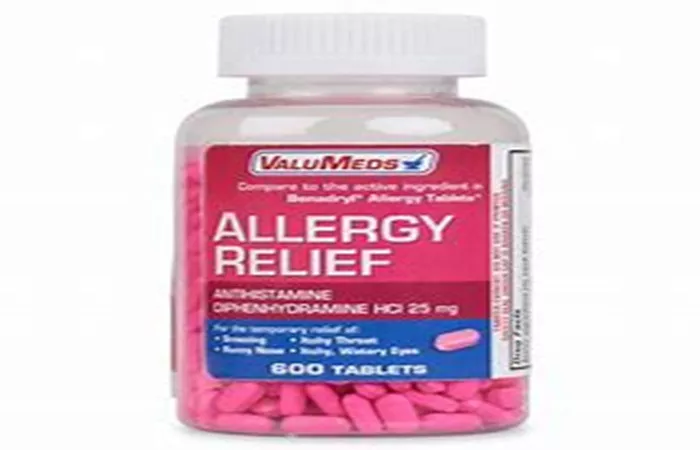Pet allergies are a common issue, affecting 10% to 20% of the global population. These allergies are caused by proteins found in an animal’s dander, saliva, urine, or fur. Symptoms can include sneezing, runny nose, nasal congestion, itchy or watery eyes, coughing, skin rashes, and, in severe cases, difficulty breathing. Managing pet allergies can be challenging, especially for those who love having pets around. This article will provide a detailed overview of the best allergy medicines for adults with pet allergies, including over-the-counter (OTC) options and prescription medications.
Understanding Pet Allergies
Pet allergies occur when the immune system overreacts to allergens from animals. The most common allergens are found in pet dander, which are tiny flakes of skin that pets shed. These allergens can also be found in pet saliva, urine, and fur. Even households without pets can be exposed to pet allergens if a pet owner visits. Symptoms can vary from mild to severe and can significantly impact daily life.
10 Types of Medications for Pet Allergies
There are several types of medications available to manage pet allergy symptoms. These include antihistamines, decongestants, corticosteroids, leukotriene modifiers, and immunotherapy. Each type of medication works differently and is suitable for different levels of allergy severity.
Antihistamines
Antihistamines are the first line of defense against pet allergy symptoms. They work by blocking the effects of histamine, a chemical released by the body during an allergic reaction. Antihistamines can help manage symptoms like sneezing, itching, runny nose, and watery eyes.
Over-the-Counter Antihistamines
Claritin (Loratadine)
- How It Works:Blocks histamine receptors, reducing symptoms like sneezing and a runny nose.
- Side Effects:Generally non-drowsy, though some people may experience mild drowsiness.
- Best For:People who need to manage symptoms without feeling sleepy.
Allegra (Fexofenadine)
- How It Works:Blocks histamine receptors and is non-drowsy.
- Side Effects:Rarely causes drowsiness.
- Best For:People who need to manage symptoms without feeling sleepy.
Zyrtec (Cetirizine)
- How It Works:Blocks histamine receptors and provides relief from sneezing, a runny nose, and itchy eyes.
- Side Effects:May cause mild drowsiness in some people.
- Best For:People with moderate to severe symptoms.
Xyzal (Levocetirizine)
- How It Works:Blocks histamine receptors and provides fast relief from symptoms.
- Side Effects:May cause mild drowsiness.
- Best For:People who need fast relief from symptoms.
Prescription Antihistamines
Azelastine (Astepro)
- How It Works:Blocks histamine receptors and is available as a nasal spray.
- Side Effects:Can cause a bitter taste in the mouth.
- Best For:People with nasal symptoms.
Decongestants
Decongestants help relieve nasal congestion by reducing the swelling of blood vessels in the nasal passages. This makes breathing easier and can also help dry up a runny nose.
Pseudoephedrine (Sudafed)
- How It Works:Reduces inflammation in the nasal passages, making it easier to breathe.
- Side Effects:Can cause restlessness, nervousness, and increased heart rate.
- Best For:People with significant nasal congestion who can tolerate the side effects.
Corticosteroids
Corticosteroids help reduce inflammation and control symptoms of hay fever. They are available as nasal sprays and can provide long-term relief.
Flonase (Fluticasone)
- How It Works:Reduces inflammation in the nasal passages.
- Side Effects:Generally safe with minimal side effects.
- Best For:People with chronic nasal symptoms.
Nasacort (Triamcinolone)
- How It Works:Reduces inflammation in the nasal passages.
- Side Effects:Generally safe with minimal side effects.
- Best For:People with chronic nasal symptoms.
Leukotriene Modifiers
Leukotriene modifiers block the action of certain immune system chemicals and can be effective for people with severe allergies.
Singulair (Montelukast)
- How It Works:Blocks leukotrienes, reducing inflammation and mucus production.
- Side Effects:Can cause upper respiratory infections, headaches, and mood changes.
- Best For:People with severe allergies who do not respond well to other medications.
Immunotherapy
Immunotherapy, also known as allergy shots, is a long-term treatment option for people with severe pet allergies. This treatment involves a series of injections to help the body build tolerance to specific allergens.
Allergy Shots
- How It Works:Gradually builds tolerance to allergens through regular injections.
- Side Effects:Can cause localized reactions at the injection site.
- Best For:People with severe allergies who do not respond well to medications.
Practical Tips for Managing Pet Allergies
In addition to medications, there are several practical tips that can help manage pet allergies:
- Avoid Exposure:Minimize contact with pets and avoid areas where pets spend time.
- Clean Regularly:Regularly clean your home to reduce allergen buildup.
- Use HEPA Filters:Use high-efficiency particulate air (HEPA) filters to reduce allergens in the air.
- Bath Pets Regularly:Bathing pets weekly can reduce the amount of allergens they carry.
- Keep Pets Out of Bedrooms:Avoid letting pets sleep in your bedroom to reduce nighttime exposure.
Conclusion
Managing pet allergies can be challenging, but there are several effective medications and practical tips available to provide relief. Antihistamines, decongestants, corticosteroids, leukotriene modifiers, and immunotherapy are all viable options, each with its own benefits and potential side effects. Always consult with a healthcare provider to determine the most appropriate treatment for your specific situation. With the right approach, you can manage your pet allergies and continue to enjoy the company of your furry friends.
Relative topics:
What Does It Mean to Have a Beer Allergy?
Food Allergy: Home Remedy or Emergency Room?
Iodine Allergy: Myths, Symptoms, Causes & Treatment

